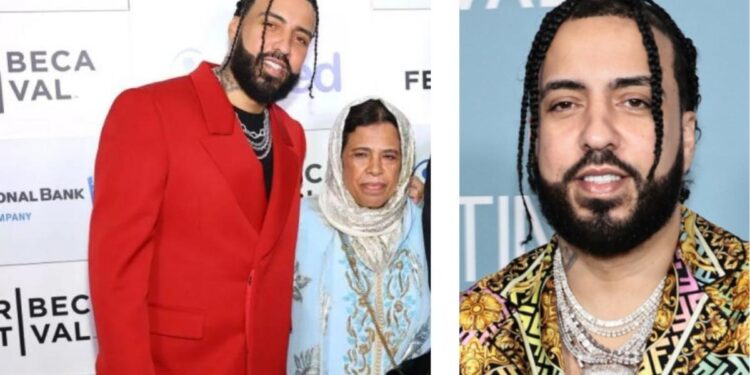In an increasingly interconnected world where identity, culture, and representation have taken center stage, Khadija Guled stands out as a powerful and rising voice among Somali women. Her name is gaining traction not only within Somali communities across the globe but also among wider circles interested in African activism, diaspora narratives, and female empowerment. But who is Khadija Guled, and why is her story so compelling? From cultural heritage to personal resilience, and from grassroots activism to media influence, Khadija Guled represents a modern figure navigating traditional roots while advocating for progressive change.
While not yet a household name to everyone, Khadija Guled symbolizes an emerging movement—one that combines heritage and purpose with visibility and advocacy. Her journey is rooted in the complexities of being a Somali woman in a world where African stories are often misrepresented or marginalized. She embodies the new generation of leaders who are redefining what it means to come from the Horn of Africa.
Quick Bio
| Detail | Information |
| Full Name | Khadija Guled |
| Gender | Female |
| Date of Birth | Not Available |
| Place of Birth | Somalia |
| Zodiac Sign | Not Available |
| Age | Not Available |
| Sexual Orientation | Straight |
| Nationality | Moroccan-American |
| Ethnicity | Somali |
| Parents | Not Available |
| Siblings | Not Available |
| Marital Status | Married |
| Husband | Abdela Kharbouch |
| Children | French Montana (Karim Kharbouch) |
| Profession | Not Available |
| Net Worth | Not Available |
Early Life: Shaped by Culture, Resilience, and Displacement
Khadija Guled’s story, like many from the Somali diaspora, likely begins with displacement, migration, and cultural preservation. Whether born in Somalia or abroad, her upbringing would have been shaped by the legacy of a proud but conflict-affected nation. Somalia, known for its rich oral traditions, poetry, and strong community values, has also experienced decades of civil unrest. For children growing up in that environment—or for those raised in the diaspora—the challenge is to hold onto culture while adapting to new worlds.
Khadija Guled, through various platforms, has often highlighted how her upbringing taught her the importance of storytelling, community, and resilience. Like many children of immigrants, she likely had to learn how to exist between two identities—one rooted in ancestral memory and the other molded by modern expectations. Her life experiences reflect not only her individual journey but also the collective story of Somali youth navigating foreign education systems, cultural alienation, and the pressure to succeed while representing their communities with pride.
Education and Advocacy: Where Voice Meets Vision
Education has always been a central theme in the journey of change-makers, and for Khadija Guled, it is no different. She is believed to have pursued higher education in fields that allow her to explore culture, identity, and social issues—whether that be journalism, sociology, international relations, or community development. In interviews and published pieces, she speaks passionately about the value of education—not just formal degrees but also cultural literacy, emotional intelligence, and critical thinking.
Her educational background has laid the foundation for her advocacy work. Khadija uses her platform to speak about systemic inequalities, especially those affecting African and Muslim women. Whether addressing racial disparities, gender-based violence, or Islamophobia, her commentary is often rooted in both academic research and lived experience. What distinguishes her from many is her ability to translate complex social issues into narratives that resonate across diverse audiences. Her activism is not limited to academic or elite circles—it reaches everyday people through relatable, accessible language.
Cultural Representation: A Voice for Somali Women Worldwide
Khadija Guled’s visibility is deeply tied to the broader need for cultural representation. For decades, Somali women have been underrepresented—or worse, misrepresented—in global media. Too often, narratives around Somalia are limited to conflict, piracy, or poverty. Khadija challenges these narrow frames by offering nuanced, authentic stories that showcase the strength, beauty, and intellect of Somali women.
She is part of a generation that is reclaiming identity on its own terms. Whether she’s writing articles, participating in panel discussions, or creating digital content, Khadija Guled consistently emphasizes the importance of cultural pride. She often speaks about the traditional Somali values of family, respect, and storytelling while acknowledging the evolving roles women are playing in both the homeland and the diaspora. Her work helps challenge stereotypes and uplift those whose voices have long been ignored or silenced.
Faith and Identity: The Role of Islam in Her Journey
Another significant part of Khadija Guled’s identity is her faith. As a visibly Muslim woman, her experience is influenced by the global discourse around Islam and its place in modern society. She does not separate her faith from her activism but rather uses it as a moral compass and source of empowerment. In many of her writings and public engagements, she speaks about the need to reclaim Islamic values of justice, compassion, and dignity—especially for women.
For Khadija, Islam is not a constraint but a source of strength. It shapes how she engages with the world and grounds her in principles that guide her work. She uses her platform to educate others about the richness of Islamic traditions while also critiquing the ways in which Muslim women are often portrayed in the media. Her balanced approach—faithful yet critical—resonates with many young Muslims struggling to find their voice in a polarized world.
Digital Influence: Using Social Media for Social Good
In the digital age, influence is often measured by followers, likes, and shares. But Khadija Guled brings substance to the screen. She uses social media not for vanity, but for visibility—with purpose. Her online presence is a mix of advocacy, education, and cultural storytelling. From tweeting about global injustices to posting reflections on Somali proverbs, she uses the digital space to connect, educate, and inspire.
Her approach to social media is intentional. She engages with audiences across different platforms—Twitter, Instagram, and possibly TikTok—not just as a content creator, but as a community builder. She uses her voice to elevate others, highlight emerging artists and thinkers, and create conversations around taboo topics like mental health in African communities. In doing so, she transforms digital space into a tool for healing, learning, and action.
Challenges and Controversies: A Woman in the Arena
Like any public figure advocating for change, Khadija Guled has not been without challenges. Speaking truth to power, especially from the intersection of African, Muslim, and female identities, is not easy. She has likely faced online backlash, cultural pushback, and even threats—common realities for women of color in public life.
Yet, Khadija persists. What makes her resilient is her ability to engage with criticism thoughtfully, stand firm in her convictions, and evolve without losing her essence. Her transparency about these challenges also makes her relatable. She speaks openly about burnout, impostor syndrome, and the mental toll of activism, reminding others that vulnerability is not weakness but strength.
Global Impact and Collaborations
Khadija Guled’s work has begun to transcend borders. Her voice is being recognized by international NGOs, academic institutions, and human rights organizations. She is invited to speak at conferences, contribute to international media outlets, and collaborate on cross-cultural projects. These global engagements not only amplify her message but also bring Somali narratives into global forums where they have long been excluded.
Her collaborations span various sectors—from refugee rights to gender equity—and often include partnerships with other African activists and diaspora changemakers. Together, they are creating networks of solidarity that stretch from Nairobi to London to Minneapolis, reshaping how Africa is represented in the 21st century.
Legacy in the Making: Why Khadija Guled Matters
Khadija Guled may still be early in her public journey, but her impact is undeniable. She is laying the groundwork for future Somali women who want to lead, create, and challenge. Her story is one of personal evolution—but also of collective empowerment. Through her writing, speaking, and advocacy, she is building a legacy that centers African women as storytellers, strategists, and change agents.
She serves as a bridge between generations, between continents, and between identities. And perhaps most importantly, she is offering a narrative that is not defined by trauma, but by triumph. For Somali girls growing up today, Khadija Guled is not just a role model—she’s a mirror reflecting what is possible.
Conclusion: The Journey Continues
The story of Khadija Guled is still unfolding. She represents a new kind of leadership—one rooted in authenticity, humility, and vision. Her influence will only grow as more people discover her work and resonate with her message. Whether you’re Somali or not, whether you’re Muslim or not, there’s something universally inspiring about her journey. It’s a reminder that identity is not a limitation, but a launching pad.
As she continues to speak, write, and connect, Khadija Guled reminds us all that change doesn’t happen in silence—it begins when someone dares to speak up, stand out, and lead with purpose.
Frequently Asked Questions (FAQ)
1. Who is Khadija Guled?
- Khadija Guled is an emerging Somali voice in the fields of activism, cultural representation, and social justice. She is known for her work in advocating for African and Muslim women, especially within diaspora communities.
2. What is Khadija Guled known for?
- She is known for her advocacy, writing, and public speaking on issues such as racial justice, gender equality, cultural identity, and Islamophobia.
3. Is Khadija Guled active on social media?
- Yes, Khadija Guled uses platforms like Twitter and Instagram to share educational content, engage with followers, and promote Somali culture.
4. How does her faith influence her activism?
- Khadija’s Islamic faith plays a central role in her activism, providing her with values of justice, compassion, and moral courage.
5. Why is Khadija Guled important today?
- She represents a new generation of Somali leaders who are challenging stereotypes, promoting cultural pride, and creating global conversations about identity and equity.

















